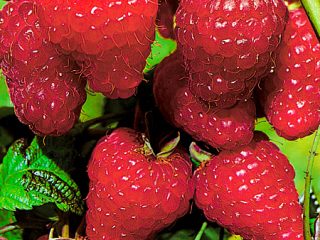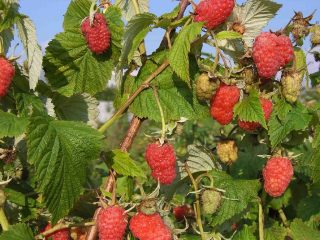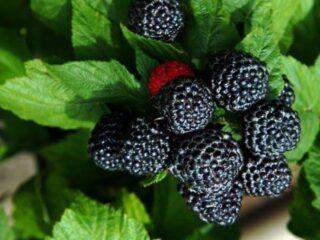Content
Raspberry Izobilnaya Kazakova is one of the favorite varieties of gardeners. It is valued not only for its large fruit, but also for the small number of thorns on the shoots. With proper planting and care, you can reap a large harvest without the risk of getting scratched.
Breeding history
The parents of the culture are the Stolichnaya and Elizabeth Kip varieties. Kazachkov and Kichina are recognized as the authors. Breeders who received the necessary results submitted an application to include the plant in the State Register. The variety was registered in 1991. It is intended for cultivation in a temperate continental climate.
Description of raspberry variety Izobilnaya Kazakova
The plant is considered a remontant variety, which is an undoubted advantage of the crop. The harvest on such a shrub ripens on both annual and biennial branches.
Berries
The fruits of the Izobilnaya Kazakova raspberry are large, conical in shape, with a glossy surface and bright red color.
The berries feel dense, so they tolerate transportation well. Raspberries have a pronounced pleasant aroma and sweet taste, with a slight sourness. The average weight of each berry is 8 g.
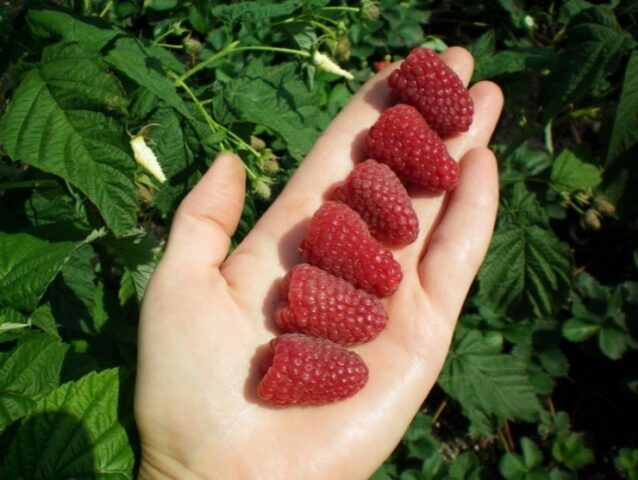
With proper care, the weight of raspberry fruits Izobilnaya Kazakova can reach 10-13 g
Bush
The plant, despite its spreading shoots, is quite compact. The branches can grow up to 2.5 m in length. The shoots are elastic and thick, light brown in color, covered with a whitish coating. The leaf blades are medium-sized, smooth to the touch, dark green in color.
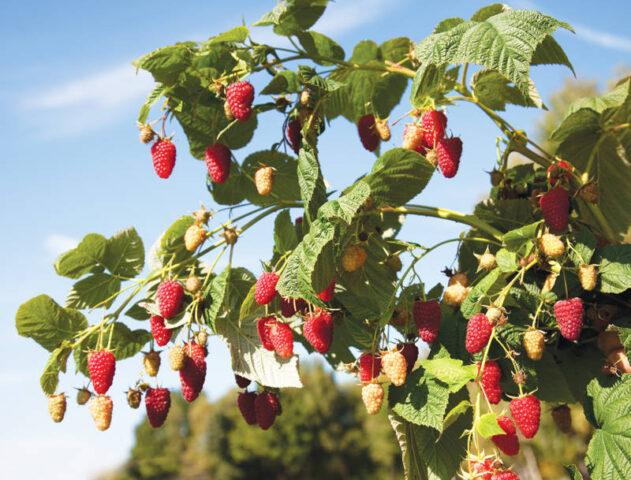
Each raspberry bush Izobilnaya Kazakova is capable of forming up to ten shoots and five root layers
It should be borne in mind that dense and elastic branches are not only an advantage, but also a disadvantage. They bend poorly, so difficulties arise when constructing a winter shelter. There is a risk of breaking the shoot when trying to tilt it towards the ground.
Characteristic
Studying the characteristics of a variety is an integral part of a gardener’s work. Before deciding whether to purchase a seedling or not, you need to find out its advantages and disadvantages and study the features of cultivation.
It should be borne in mind that high temperatures also negatively affect yields.Berries wither without shading, young shrubs or seedlings may die from the heat.
Ripening time and yield of raspberries Izobilnaya Kazakova
Most gardeners believe that Izobilnaya red raspberries have an early ripening period. The climatic features of the regions should be taken into account. In the south you can harvest earlier than in colder climates. There the bushes begin to bear fruit in early July.
The productivity of Izobilnaya Kazakova raspberries is high: 4-4.5 kg of berries can be collected from each plant. On an industrial scale, producers receive up to 20 tons of fruit from one hectare.
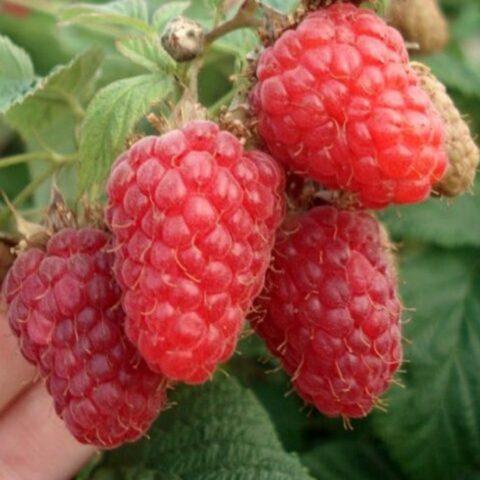
Izobilnaya Kazakova raspberries tolerate transportation well without loss of taste and marketability
Frost resistance
The variety is known among gardeners for its ability to withstand low temperatures. With proper care, the shrub is not afraid of frosts down to -30 ° C. But this characteristic is relevant if raspberries overwinter under snow cover at least 1-1.5 m thick.
If heavy precipitation is not typical for the region, then the Izobilnaya Kazakova variety is recommended to be covered for the winter with improvised means.
Disease resistance
Raspberries are rarely attacked by insects and bacteria. Most often, shrubs that do not receive proper care suffer.
Pros and cons of the variety
One of the most significant advantages of the plant is its high frost resistance. An adult healthy shrub can withstand temperatures down to -30 °C with snow cover.
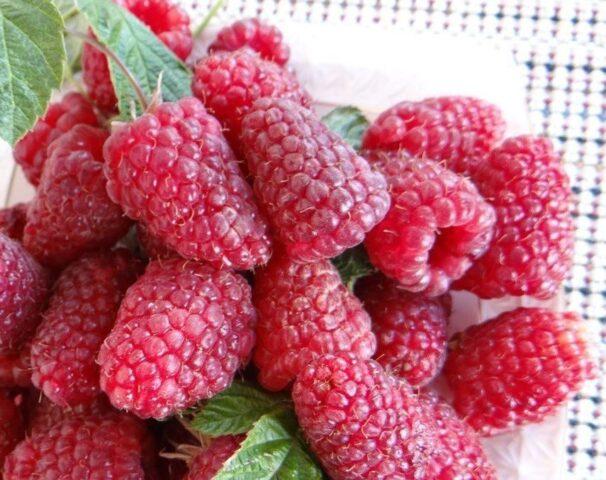
The Izobilnaya Kazakova variety has excellent transportability and high marketability
Advantages:
- stable yield every year;
- large fruit;
- strong immune system;
- absence of thorns on the shoots.
Flaws:
- the bush needs a garter;
- The variety does not tolerate extreme heat and drought.
Features of growing raspberries Izobilnaya Kazakova
The variety is considered to be unpretentious, but the harvest is obtained only by hardworking gardeners who adhere to the rules of agricultural technology.
The soil for Izobilnaya Kazakova raspberries needs to be dug up deeply and mineral and organic fertilizers added to it.
It is best to purchase seedlings of the first year. Their branches should be intact, with buds, without cracks or signs of rot.

The root system of the Izobilnaya Kazakova raspberry is considered to be good if it is branched and has several shoots
The soil on the site should not be acidic. Wetlands with depleted soil should also be avoided. It must be taken into account that the shrub loves sunny places, but reacts negatively to direct rays.
Landing rules
The work algorithm includes the following steps:
- Prepare a trench measuring 40*40*50. It is recommended to start working with the pit in the fall. Mix the soil at the bottom with fertilizers.
- Place the shrub in the hole, cover it with soil, and water it generously on top.
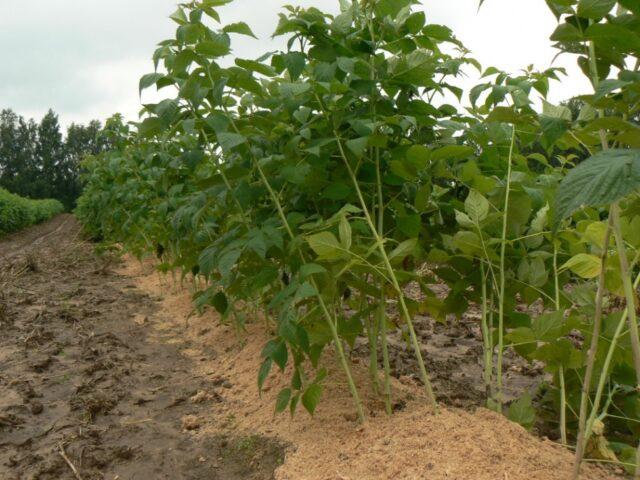
Mulch the ground around the raspberries with sawdust or pine needles
How to care
For a bountiful harvest, proper care is required. In addition to watering, fertilizing and pruning are mandatory.
It is necessary to thin out Izobilnaya Kazakova raspberries before the plant wakes up from hibernation, no later than March. Sanitary pruning involves removing dry, damaged or weak shoots. Excessive thinning of the bush should be avoided.

On each square meter after pruning the Izobilnaya Kazakova raspberry there should be at least ten strong shoots
It is necessary to provide the shrub with a sufficient amount of moisture. Under normal weather conditions, in the absence of abnormal heat, pour two buckets of water per day onto each plant.
It is recommended to use the following fertilizers as fertilizers per square meter:
- in the fall, add 150 mg of urea or saltpeter, 4-5 kg of humus;
- in summer, leave a layer of cow or horse manure 4-6 cm thick under the bush;
- In the spring, water the ground around the trunk with mullein solution: 1 kg of fertilizer per bucket of water.
Prevention of diseases and pests
If the soil is regularly waterlogged, there is a risk of developing anthracnose. You can suspect a disease when examining the plant: purple spots appear on the leaves.
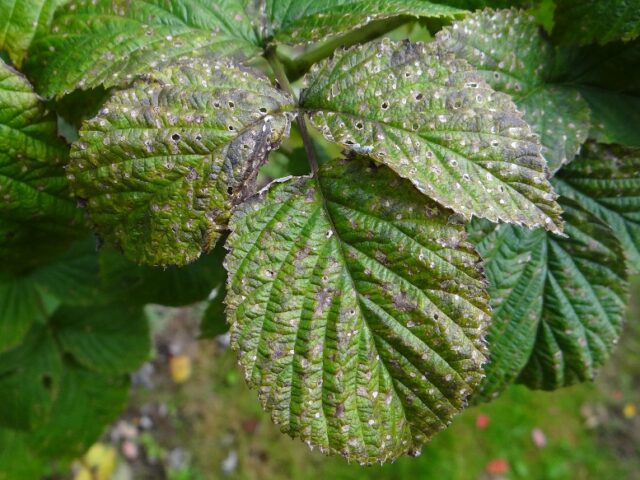
To protect Izobilnaya Kazakova raspberries from anthracnose, treat the plant with 3% Bordeaux mixture
If growths were found during examination of the root system, then the development of cancer should be assumed. As a preventive measure, it is necessary to use copper sulfate. The roots should be treated with a medicinal solution, and then dipped in a clay mash.
At high humidity and low temperatures, powdery mildew on raspberries is activated, characterized by a white coating on the shoots. Without timely treatment, the disease will quickly spread not only throughout the bush, but also among nearby plants.
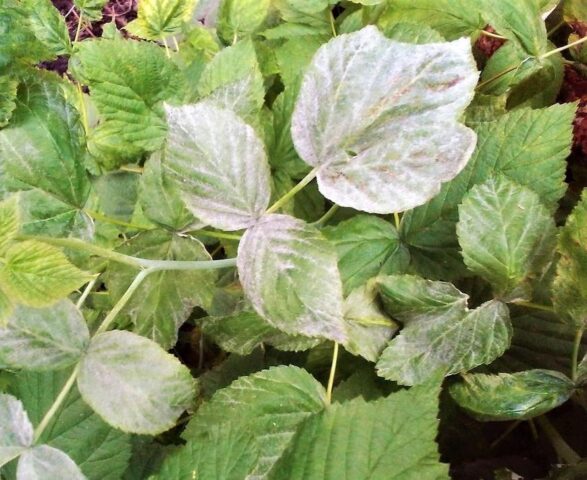
Preparations such as Fitosporin and Profit Gold are effective against powdery mildew.
Conclusion
Raspberry Izobilnaya Kazakova is a popular remontant variety. The plant can be characterized as high-yielding, frost-resistant, unpretentious, and responsive to care. If you adhere to the principles of agricultural technology, then there is a chance to ensure stable fruiting.And good transportability and presentation attract the attention of representatives of industrial production.



